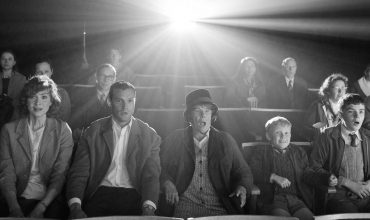Welcome to a beautifully bizarre exploration of a souring male friendship brought to a comedic and melancholy end point – you’ve arrived at The Banshees of Insherin. Banshees is the latest offering from writer-director Martin McDonagh (Three Billboards Outside Ebbing Missouri, 2018), who brings back the stars of his 2008 debut In Bruges, Colin Farrell and Brendan Gleeson, to create this delicate tragicomedy.
Well, perhaps delicate is the wrong word. The premise of this film is simple – one man decides he can no longer tolerate the other, and wants to end their friendship, in whatever way necessary. Our stage is set in 1923 on the fictional island of Insherin (an amalgamation of stereotypical bleak Irish small town cliches), as the Irish civil war rolls in the background, loosely acknowledged by the actors as “a bad do”, but really a foreshadowing of bloodshed to come.
Our hero is Pádraic (Colin Farrell), the ‘humble’ dairy farmer, happy with his lot in life and deeply attached to his miniature donkey, wants nothing more than to have his daily pint with his unlikely best friend, the embittered musician and deep resonate thinker Colm (Brendan Gleeson). However today, Colm simply doesn’t answer, staring fixed at the wall in his ancient hovel by the sea. From here we spiral along with Pádraic as panics and pushes Colm to reveal that despite still loving Pádraic deeply, he no longer has the time for his “aimless chatting” as he seeks to leave his mark on the world during the rest of his mortal lifespan. Pádraic is supported by a cast of varied characters – the more intelligent sister Siobhan (Kerry Condon), destined to escape and forge a life of her own on the mainland; and the hapless Dominic (Barry Keoghan), who is desperate to make his own escape, this time from the pedophilic clutches of his cruel policeman father.
Ok, we’ve seen odd-couple comedy before in friendships with age imbalances – older man gets fed up with the naive younger man, whose life is consumed by everyday concerns, while he, wiser and more jaded, looks for what will outlive him – music, art, philosophy – as he is faced with the looming constraints his own mortality. However, this clumsy comedic courtship turns deadly as Colm, the island’s best fiddle player (and main source of entertainment) threatens to cut off a finger on his playing hand every time Pádraic speaks to him.
As the heartbreaking waltz of the two men’s pain plays out, we see McDonagh do what he does best – the film oscillates from satisfying satire, to deeply moving narrative on the nature of conflict between men, with pervasiveness of bitterness and self destruction on all sides.
The setting of the island becomes a metaphor for the confined limitations of toxic masculinity – with notably only Siobhan making it out from the festering, self-consuming community. She is the only one who sees the Banshee calling her and has the strength to turn away and forge her own path.
So much is left unanswered and dissatisfyingly unresolved. We never learn the identity of the Banshee: is it the waiflike Mrs. McCormack, calling to us across the peat or is it the booming canons of the civil war rallying the unconscious fear of mortality in us all. It feels as if the audience is cast into the turbulent waves off the Irish coast, and McDonagh does not leave us a way out.
9/10


